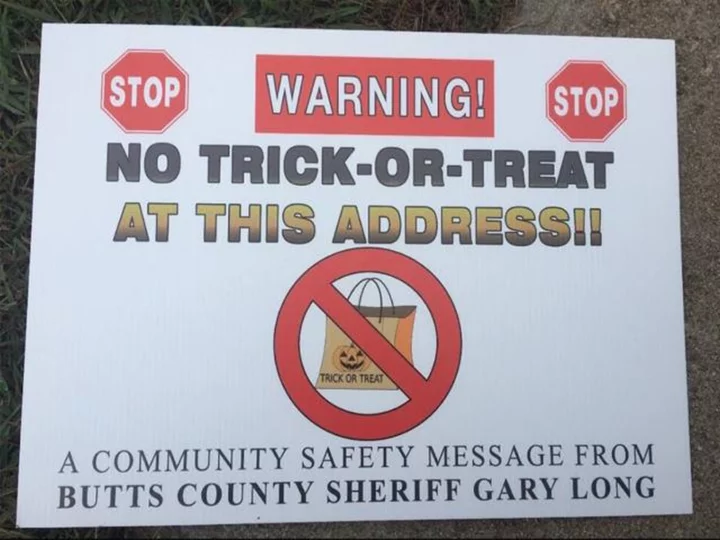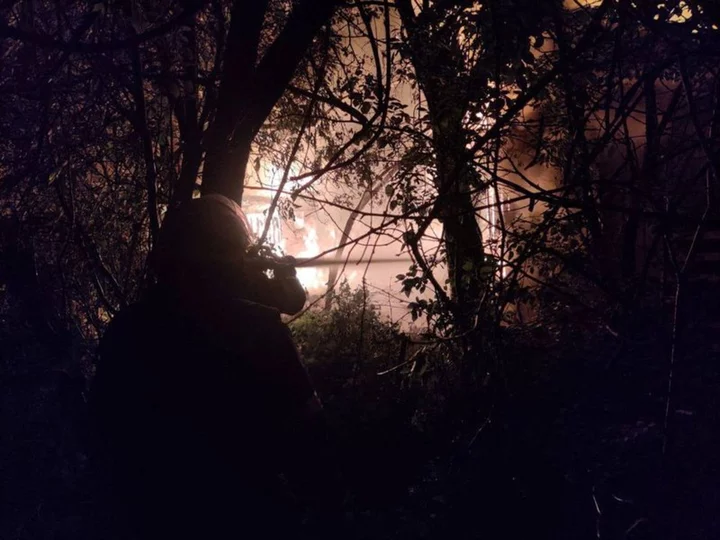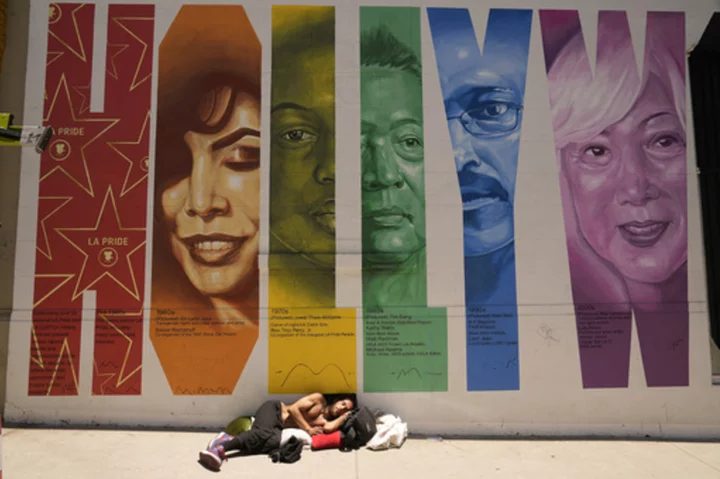In some cities and states, children and families can trick or treat on Halloween knowing that authorities have imposed extra measures to keep sex offenders away.
In several states, including Georgia and California, some supervised sex offenders are not allowed to have contact with kids under 18. With that in mind, law enforcement agencies in many jurisdictions take steps on Halloween to ensure sex offenders don't come near trick-or-treaters.
"I don't let my kids roam the neighborhood alone on Halloween for many reasons," said Abony Wilkins of Indianapolis. "I feel a little better knowing that sex offenders are under watch that day. Once you've robbed a child of their innocence, I have no concerns for your feelings as an individual."
Here's what some states and jurisdictions do:
Conducting evening home checks
California dispatches parole agents to conduct home checks on sex offenders who are not allowed to have contact with children. During the checks, offenders can only open their doors for law enforcement patrolling their neighborhoods to ensure they're not taking part in Halloween activities, said Tessa Outhyse, a spokesperson for the state's Department of Corrections and Rehabilitation.
In Georgia, supervised sex offenders are subject to the Department of Community Supervision's conditions, which allow authorities to visit their homes during Halloween. The officers ensure offenders aren't decorating their homes, leaving lights on or answering the door for trick-or-treaters, said Brian Tukes, the agency's external affairs director.
Other states, including Tennessee and Missouri, also perform unannounced Halloween home checks on sex offenders.
Critics have called some such measures invasive and a scare tactic, saying data show the vast majority of sex crimes against children are committed by family members or acquaintances -- not strangers. More than 90% of child victims know their offender, according to statistics cited by the California Department of Justice.
And there is no evidence that offenders target kids more on Halloween than on other days.
But law enforcement agencies err on the side of caution.
Imposing a curfew
California requires supervised sex offenders to remain indoors on Halloween night between 5 p.m. and 5 a.m., Outhyse said.
During those hours, they're not allowed to answer the door for trick-or-treaters, display decorations that would attract children or have their lights on, she said.
In Missouri, some registered sex offenders must remain indoors on Halloween night -- unless they have to leave for work or medical emergencies.
Gathering sex offenders in one place
In Georgia's Newton County, the sheriff's office has held annual shut-ins on Halloween night. Authorities gather sex offenders in a controlled environment, like the sheriff's office, during evening hours while children are out trick-or-treating.
During the shut-ins, sex offenders hear from a judge, parole officers and other guest speakers.
Caitlin Jett, a spokesperson for Newton County Sheriff's Office, declined to say whether another shut-in was planned last year.
"The exact details of our operation are not provided to the public," Jett told CNN.
In the past, authorities in some South Carolina and Virginia cities also have gathered sex offenders in the sheriff's office during trick-or-treating hours, a move they say is needed to keep kids safe.
But sex offenders have pushed back. In 2020, they sued a western North Carolina county that required them to gather at the National Guard armoury on Halloween night, saying the mandatory meeting violated their constitutional rights.
Requiring offenders to post a sign in their yards
In Missouri, some sex offenders are required to post a sign stating "no candy or treats at this residence."
In Jacksonville, Florida, sex offenders are legally required to post a sign outside their home with the words, "No candy or treats here" to warn off trick-or-treaters.
But such signs have faced legal challenges.
Several sex offenders sued the city of Jacksonville in 2021, calling the sign unconstitutional. The city has said it won't enforce the law while the suit is pending.
However, the Jacksonville Sheriff's Office says deputies will be keeping an eye on the area's more than 2,500 registered sex offenders.
In Georgia, a group of registered sex offenders filed a federal suit against the Butts County Sheriff's Office in 2019 over similar signs, accusing authorities of trespassing onto their private property to post them. The offenders said the signs caused them anxiety and humiliation. A federal judge ruled in favor of the sex offenders.
Requiring offenders to turn off their lights
A darkened house on Halloween night doesn't always mean the residents are away or have run out of candy. It could also be a sign that someone inside is a registered sex offender.
In states such as Georgia, Missouri, Texas and California, sex offenders under supervision must keep their lights off and doors shut between a specified time frame on the evening of Halloween.
In some jurisdictions, including Jacksonville, sex offenders also are prohibited from putting up any Halloween decorations -- even pumpkins.
"Halloween presents an enticing opportunity for Sexual Offenders and Sexual Predators because of the number of kids out at night, trick-or-treating and knocking on strangers' doors," the Jacksonville Sheriff's Office said in a statement. Deputies have been checking sex offenders' homes to make sure they comply, the sheriff's office said.
Providing an online sex offender locator
Some states and local jurisdictions provide a sex offender locator that parents can access before their kids go trick-or-treating.
In Georgia, Newton County authorities share Halloween safety tips that include an app to locate nearby sex offenders, says Jett, the spokesperson.
California also provides a sex offender locator in its "Operation Boo" guide for parents on Halloween, along with videos on ways to talk to kids about safety.
"While instances of sexual abuse or abductions have not been prevalent on Halloween night in California ... we still want to offer some traditional safety tips if you plan to go out with your family," the California Department of Corrections and Rehabilitation says.
Authorities in Indianapolis, where Wilkins lives with her three young children, have required paroled sex offenders to observe a curfew on Halloween evenings and remain home with their lights off and no candy handed out.
Sheriff's departments in the state also post an interactive map showing where sex offenders live.
Before moving into her neighborhood Wilkins mapped out all the nearby registered sex offenders and ensures her kids avoid those homes.
"They know not to go anywhere near those houses," she told CNN. " I've told them when you see this man, you should not have any conversations with him."









